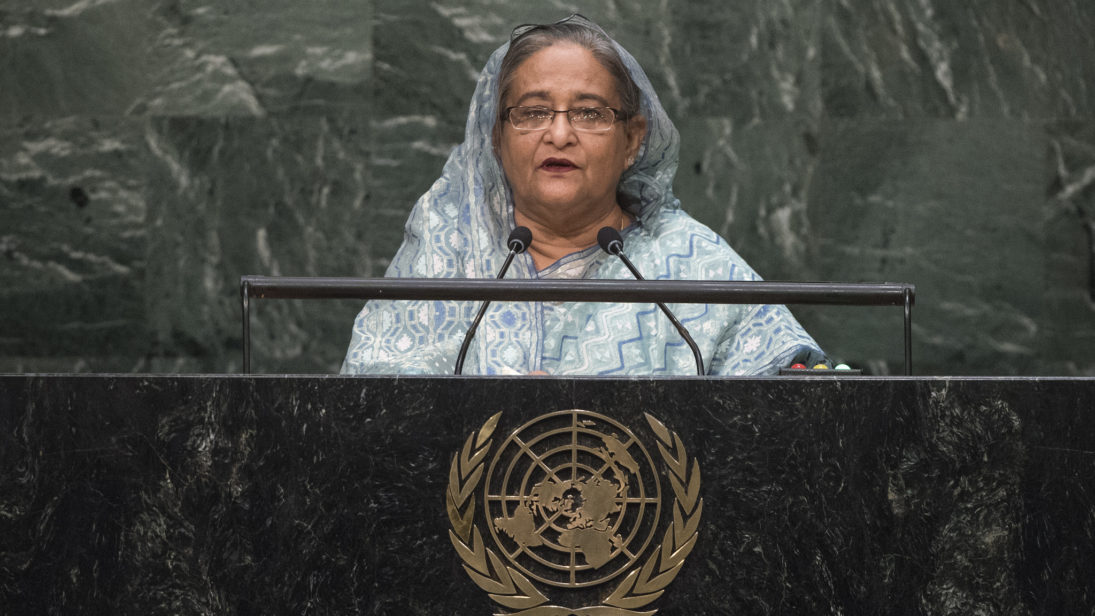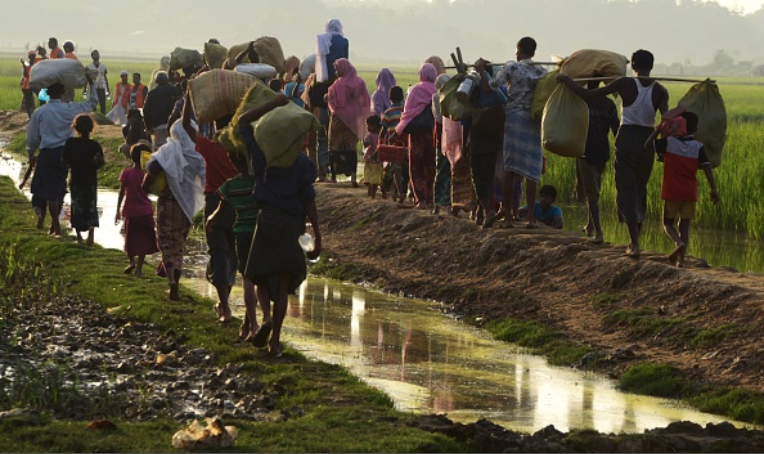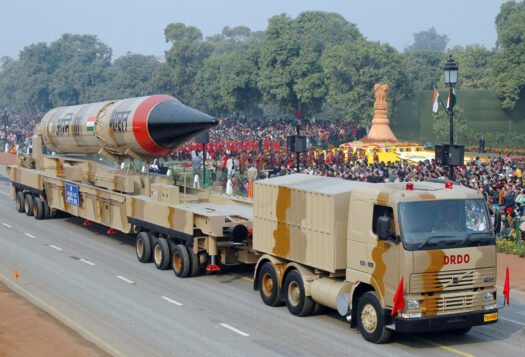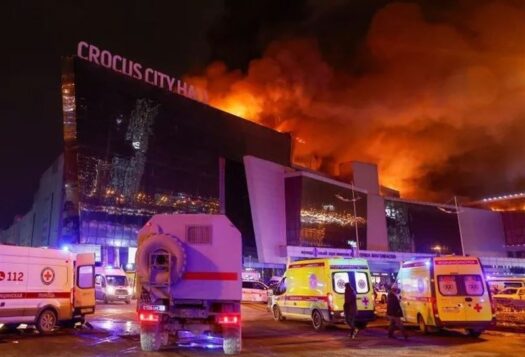
Bangladesh is the world’s eighth most populous country with a population of almost 160 million. Termed a “tiger” economy by The Economist last year, Bangladesh’s consistent GDP growth since the early 2000s signals the country has the potential to attain middle-income country status in the near future. As such, Bangladesh’s economic growth and its strategic location in the Bay of Bengal make it an important player for policymakers in New Delhi, Beijing, and Washington to consider when formulating a comprehensive South Asian strategy.
Yet, 2017 has been a tumultuous year for the nation due to a severe refugee crisis, internal protests, and policy shifts in favor of China over its traditional partner, India. The durability of Bangladesh’s development and welfare as an emerging nation will be determined by how it deals with the challenges 2017 has presented.
Supreme Court Statue Controversy
On February 24, an Islamist religious movement called Hefazat-E-Islam (or Hefazat) called for massive protests across Bangladeshi cities demanding that the statue of Lady Justice be removed from the premises of Bangladesh’s Supreme Court on the grounds that the statue was a form of idol worship. Though the statue was removed, this led to counter-protests demanding that the statue be reinstalled. Two days later, it was reinstalled, albeit in a less prominent space.
The government’s convoluted response to the controversy is concerning both domestically and geopolitically for Bangladesh. Acquiescing to the demands of a hardline extremist group like Hefazat after their show of strength will only encourage them and other likeminded groups in their attempts at further disrupting Bangladesh’s moderate and tolerant credentials in the region. Hefazat has an “our way or the highway” approach as seen in their stated mission to “protect the belief, culture and tenets of Islam, raise consciousness among the Muslims, and wage ‘methodical’ movement over religious issues.”
This makes them a dangerous variable in the equation of Bangladesh’s stability and prosperity. Setting such a precedent of complying with the demands of extremists will present an issue for the government going forward, one that will need to be reset and balanced if the Bangladesh government wishes to maintain control of the country and rule of law.
Deepening Ties with China
In late 2016, President Xi Jinping became the first Chinese head of state to visit Bangladesh in 30 years. During the visit, both countries signed 27 bilateral agreements worth billions of dollars. Dhaka also gained a credit line of $24 billion, dwarfing the $2 billion credit line it received from India during Prime Minister Modi’s visit in 2016. In 2017, Chinese investment in Bangladesh continued to be emphasized in many sectors including infrastructure, agriculture, energy, information technology, and transportation.
In addition to these economic deals, in a historic first, Bangladesh added two Chinese-origin submarines to its fleet at a total cost of $203 million. The commissioning of the submarines signals a new level of defense cooperation between China and Bangladesh beyond the usual economic ties the two countries have shared for a number of years.
China’s increased cooperation in Bangladesh is likely motivated by their desire to limit India’s sphere of influence. Bangladesh has always been a staunch Indian partner considering the historical ties between the two countries and bilateral cooperation on a vast number of issues. While that is unlikely to change, China’s recent overtures into South Asia present an array of opportunities for Bangladesh. For instance, if Bangladesh wholeheartedly participates in China’s One Belt One Road (OBOR) initiative, as it hinted earlier this fall, the China-Bangladesh relationship would undoubtedly grow closer. This could allow Bangladesh to extract better deals from India as well as China.
Rohingya Refugee Crisis
In neighboring Myanmar, security forces have carried out operations to systematically eradicate the Muslim Rohingya population in Rakhine state. This humanitarian disaster has caused over 600,000 Rohingya refugees to cross into Bangladesh in recent months, bring the estimate of the total number of Rohingya refugees in Bangladesh up to one million. The refugee crisis has created a massive strain on Bangladesh’s limited refugee hosting capacity. While Myanmar-Bangladesh relations have not always been productive, the Rohingya crisis adds another layer of deterioration to relations between the two neighbors.
The Rohingya crisis is a challenge for not only for Bangladesh’s infrastructure, but also to its international reputation. Dhaka’s open door policy of taking in a flood of refugees gave the country’s image a boost in the court of world opinion. In addition, Prime Minister Sheikh Hasina emerged as a leading voice in calling for justice for the Rohingya, putting pressure on Myanmar to stop the atrocities in Rakhine state. In a diplomatic victory for Bangladesh, the United States recently declared Myanmar’s action against Rohingya Muslims an act of ethnic cleansing and even threatened sanctions, signaling the U.S. administration has come a long way from President Trump’s lukewarm reception of Prime Minister Hasina’s appeal to him during the United Nations General Assembly.

Bangladesh must deal with the immediate issue of caring for the thousands of Rohingya residing in refugee camps within its borders. Towards this end, Bangladesh will transport the refugees to Thengar Char, an island that emerged from the Bay of Bengal in 2006, and transform the uninhabitable island into a livable home for the Rohingya refugee population. Along with moving refugees, Myanmar and Bangladesh have reached a deal to repatriate the refugees, though the specifics of the deal have not been published.
This is particularly tricky ground for Bangladesh. On the one hand, resolving the Rohingya issue will be a long-term strain on Dhaka’s financial resources and diplomatic capacity. On the other hand, this is a key opportunity for Bangladesh to present itself as a stable power that can grapple with such challenges responsibly.
Resignation of Chief Justice Sinha
On August 1 the Bangladesh Supreme Court scrapped the controversial 16th amendment to Bangladesh’s constitution that empowered parliament to remove judges for incapacity or misconduct. After the verdict, Chief Justice Surendra Kumar Sinha found himself in hot water with parliament, the law minister, and other prominent politicians from the ruling Awami League Party who had wished for its lawmakers in parliament to retain the power of disciplining judges. Days before the Supreme Court was to reopen after a recess period, Justice Sinha requested a month’s leave for personal health reasons. Yet, when exiting the country, Justice Sinha issued a statement that stated he was in good health but “embarrassed” at the events that had transpired following the verdict. The next day Justice Sinha was charged with “graft and money laundering,” the evidence for which was handed down from the president. Under pressure from all sides, Justice Sinha resigned in November.
The manner in which the government bristled at the Supreme Court’s verdict on the 16th amendment was not that of a country that has committed to an independent judiciary. For Bangladesh to be taken seriously in the world stage, it has to ensure that the rule of law takes prominence over party allegiance.
Conclusion
How Bangladesh handles the challenges that lie ahead in 2018 will prove to the world whether it is ready to be a prominent player in the region and the world. To this end, it is in Bangladesh’s best interest to carefully monitor its evolving position in the region, its international standing, its increased militancy problem, and the state of its democracy throughout the course of 2018. If Bangladesh proves it is up to this task, it will emerge as a stable democracy and a key geopolitical actor in South Asia.
Editor’s note: This is the second piece in our 2017: Year in Review series. In this six-part series, our contributors assess the most significant domestic and foreign policy developments in Afghanistan, Pakistan, Bangladesh, India, Sri Lanka, and Nepal in 2017 and how these developments will impact the countries and the region in 2018. Read the entire series here.
***
Image 1: United Nations via Flickr.
Image 2: Dibyangshu Sarkar via Getty Images.


